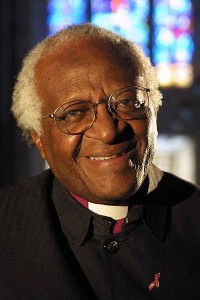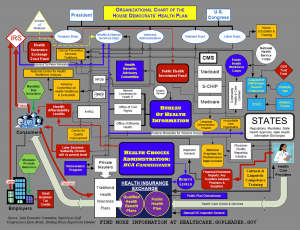This health care debate is getting out of control. We seem to have reached the point where no one is listening anyone and both sides consistently descend into the type of demonization where everyone who doesn’t agree with you is a Nazi. Therefore, it is not my goal to convince anyone to change their view on the issue, but rather to present a different way of looking at it.

At the end of the day, there is one question under-girding this whole debate and no one seems to be approaching it directly. Rather than arguing over the merits of a single payer system vs. co-opts, or arguing over how much government intervention is acceptable, we must first as this: Is healthcare a right? How you answer that question is going to determine how you approach every other question.
For the last century we have generally assumed that education is a right of every American. Before the mid 1800’s the school systems were nearly all private and it was not until the Reconstructionist movement following the Civil War that nearly the entire country offered “universal education.” We have reached the point where no one questions the appropriateness of using tax dollars to ensure every American the chance to graduate high school. Of course reform is needed, there are inefficiencies that need to be addressed, and problems the system faces; but no one is arguing we should cut off access to education just because people can’t afford it. Again, this is because we assume education is a right every citizen is entitled to.
So what about health care? If we think it makes sense to extend education to everyone, why not basic medical care as well. After all, our Declaration of Independance understood the presence of certain inalienable rights including “Life, Liberty and the Pursuit of Happiness.” In my book, basic health care falls under the right to life. And why wouldn’t it? Do we really think the ability to be healthy should be a privileged only extended to the rich, those with good jobs, and those who are already healthy? This is the debate we need to engage first before we get into the logistics.
Let’s jump back to the discussion of universal education because I think there are many parallels we can learn from. First, both are expensive. In America, according to the Education Department, we spend roughly 7% of the GDP on education — most of that comes in the form of tax dollars. By comparison, health care consumes 14-17% of the GDP depending on which source you use. Apples and oranges right? Well not really. If you look at countries with socialized medicine, their spending levels are dramatically lower. Spain spends 7.6%, the UK spends 7.7% and Canada 9.6%. [ASIDE: Did you know the average health insurance company spends 12% on administration, while Medicare/Medicaid only spend 2%]
Beyond just looking at cost, I think many of the charges leveled against universal health care can be dispelled by looking at our universal education system. One of the most persistent questions concerning a “public option” has been how can fair competition exist a for-profit private company and a government entity. The same question of competition could be asked of the education sector: How can any private education institution compete with public schools who offer free tuition? If you ask me, private schools do just fine. There are plenty of people willing to pay more for exclusive environments. Just look at private colleges. Even though they generally cost 2-3 times what a public university does, enrollment is still strong. Why is that? Because even when there is a free (or cheap) public option, people still want exclusivity and choice. In a recent town forum discussion, a University of Colorado student asked Obama how private companies could be expected to compete with a government run plan. That is a good question for sure, but the irony lies behind it. This student is receiving a government subsidizes university education, and asking his question to a person with a degree from Harvard – the oldest private university in the nation, and coincidentally, the first corporation in our nation. The costs are not even close. UC tuition is 4-6K per semester while Harvard is 17K. That is not fair competition is it? Yet which school would you rather have a degree from? When you offer a good product, there is always competition.
What about the rationing of care? You would think that since the government is picking up the tab for everyone’s primary education, they would need to ration educational expenses — you know, get rid of the people that cost the most. In practice, the opposite is true. Special education students are given more resources and extra services despite the fact it is of increased cost. Additionally, even though a public education option exists, parents have the option of seeking additional interventions on their own. No one is kicking little Johnny to the street because he costs an additional $1,000 per year because he need speech therapy.
Our education system is not perfect. There are blatant ineffeciencies and places where reform is clearly needed. There are areas where we are not providing the services we should, and times where the government is overstepping its bounds. But at the end of the day, people are not looking to throw out the whole system. Why? Because we think education is a right, and when we believe this we are willing to work with the system even if it is not perfect.
Considering health care a right is not some crazy liberal thought — it is widely held by the richest countries in the world. The following countries have universal health care: Afghanistan, Argentina, Austria, Australia, Belgium, Brazil, Canada, Chile, China, Cuba, Costa Rica, Cyprus, Denmark, Finland, France, Germany, Greece, Iraq, Iceland, Ireland, Israel, Italy, Japan, Luxembourg, the Netherlands, New Zealand, Oman, Portugal, Russia, Saudi Arabia, Spain, Sweden, South Korea, Sri Lanka, Ukraine and the United Kingdom. We are not breaking new ground, we are simply exploring an understanding of human rights that is already commonly held in developed world.
When we argue against universal health care, we are arguing against the worth of another human being. I am convinced in 100 years it will be as inconceivable to deny health care to people as it is today to deny education.




